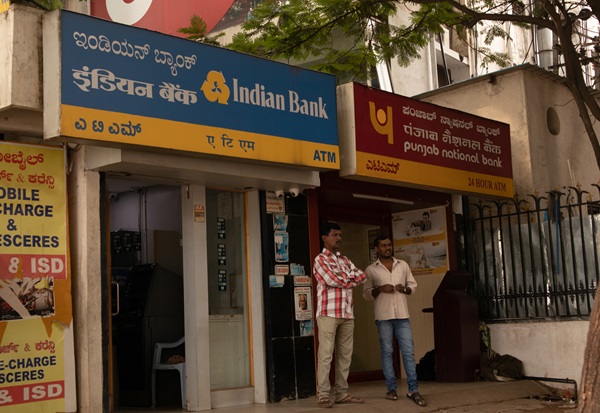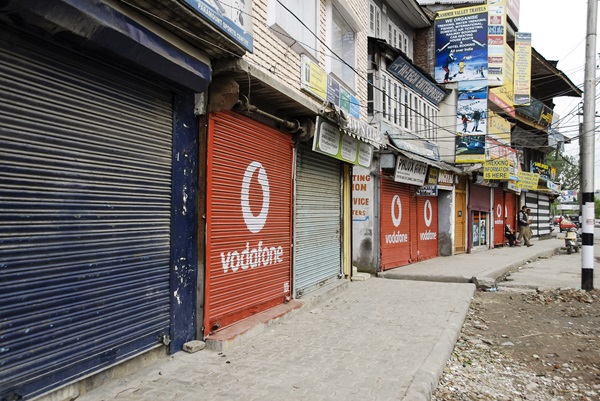.png)

Krishnadevan is Consulting Editor at BasisPoint Insight. He has worked in the equity markets, and been a journalist at ET, AFX News, Reuters TV and Cogencis.
September 11, 2025 at 12:41 PM IST
Urban Company's IPO was an outright blockbuster on opening day as retail investors sought shares nearly seven times over, the well-heeled HNIs rushed in fourfold, and the offer was subscribed three times within hours. The ₹19 billion dash for India's home-help heavyweight is a cultural signal that house calls are profitable, valued and make headlines. It shows that investors want a piece of the lifestyle revolution.
The frenzy feels fitting for a country caught in a curious contradiction. Indians, legendary for their elastic relationship with time and famously flexible approach to punctuality, are suddenly willing to pay a premium for on-demand services. The same society that treats “five minutes” as code for “sometime today” is now funding platforms that promise beauticians who arrive exactly when expected and plumbers who fix problems on time.
This striking irony captures the essence of Urban Company's appeal and explains why investors rushed to buy shares with such enthusiasm.
Urban Company slots neatly into the rarefied club of convenience champions that includes Swiggy, Eternal’s Zomato and Blinkit, companies whose valuations have soared on the promise of instant gratification. The numbers tell a compelling story of growth and genuine stickiness. Revenue surged from ₹6.36 billion in 2022-2023 to ₹11.44 billion in 2024-2025, powered primarily by beauty-at-home services where Urban commands roughly 60% of online bookings and boasts retention rates above 80%. This isn't just expansion, it's the emergence of a new consumer habit where pampering becomes predictable and convenience outweighs cost concerns.
The beauty segment represents Urban Company's crown jewel, where customers build genuine relationships with trusted professionals who transform homes into personal salons. Unlike transactional services such as appliance repair or plumbing, beauty treatments foster relationships that encourage clients to return to the platform instead of contacting providers directly. Cleaning services also perform respectably in the loyalty stakes, but nothing matches the magnetic pull of regular grooming appointments where quality and consistency matter more than price.
Yet beneath the subscription success lurks a persistent challenge that threatens Urban Company’s core business model. Beyond beauty and cleaning, Urban Company faces persistent risks from platform bypass behaviour. After experiencing satisfactory appliance repairs or prompt plumbing fixes, customers often establish direct relationships with service providers, cutting out Urban Company's commission and undermining the subscription model investors find so attractive. The widespread preference for informal, relationship-based transactions remains the biggest leak for Urban Company's retention bucket.
Financially, Urban Company finally turned profitable with ₹2.40 billion in net profit in 2024-2025, though much of that boost came from deferred tax credits rather than from core operational performance. The real test lies ahead as competition intensifies and customer acquisition costs rise. While Urban Company's beauty stronghold generates genuine loyalty, the broader service spectrum remains vulnerable to the old-school WhatsApp-and-direct-call culture that still dominates India's informal economy.
What this company’s IPO represents goes beyond share prices and subscription figures. Urban Company's market debut marks a cultural turning point where promptness, professionalism and pampering are valued and actively traded in the stock market. The platform has successfully monetised India's growing impatience, transforming a population known for tardiness into customers willing to pay premiums for punctual services.
The broader narrative resonates with investors who recognise that India's consumer economy is shifting from bargain-hunting to valuing time. GST rate cuts and income tax incentives aimed at boosting household demand have provided a tailwind for companies delivering lifestyle convenience at scale. Anchor investor commitments from blue-chip investors such as Norges Bank and Fidelity underscore the potential of the business model.
For investors betting on India's convenience revolution, Urban Company provides a way to benefit from a society increasingly willing to pay for time-saving services rather than simply tracking time. Whether this lifestyle-led valuation delivers real returns depends entirely on Urban Company's ability to make platform loyalty permanent rather than tentative.
The ultimate irony remains delightfully intact. A country chronically casual about punctuality is financing platforms designed to eliminate tardiness. If Urban Company can retain its grip on beauty services while increasing loyalty across other offerings, this cultural contradiction could become its strongest valuable moat.




